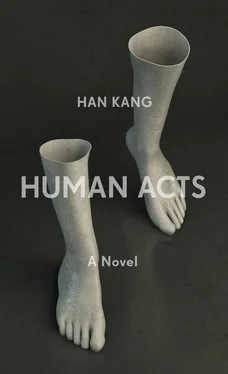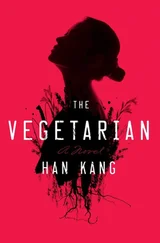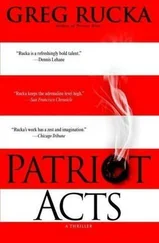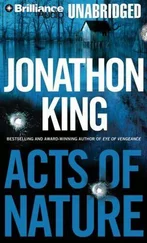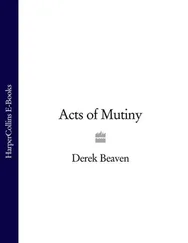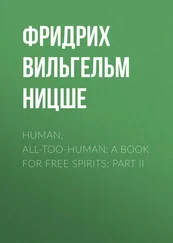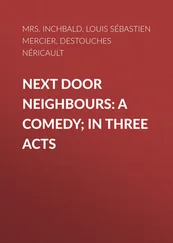Han Kang - Human Acts
Здесь есть возможность читать онлайн «Han Kang - Human Acts» весь текст электронной книги совершенно бесплатно (целиком полную версию без сокращений). В некоторых случаях можно слушать аудио, скачать через торрент в формате fb2 и присутствует краткое содержание. Год выпуска: 2016, Издательство: Portobello Books, Жанр: Современная проза, на английском языке. Описание произведения, (предисловие) а так же отзывы посетителей доступны на портале библиотеки ЛибКат.
- Название:Human Acts
- Автор:
- Издательство:Portobello Books
- Жанр:
- Год:2016
- ISBN:нет данных
- Рейтинг книги:4 / 5. Голосов: 1
-
Избранное:Добавить в избранное
- Отзывы:
-
Ваша оценка:
- 80
- 1
- 2
- 3
- 4
- 5
Human Acts: краткое содержание, описание и аннотация
Предлагаем к чтению аннотацию, описание, краткое содержание или предисловие (зависит от того, что написал сам автор книги «Human Acts»). Если вы не нашли необходимую информацию о книге — напишите в комментариях, мы постараемся отыскать её.
Human Acts
Human Acts — читать онлайн бесплатно полную книгу (весь текст) целиком
Ниже представлен текст книги, разбитый по страницам. Система сохранения места последней прочитанной страницы, позволяет с удобством читать онлайн бесплатно книгу «Human Acts», без необходимости каждый раз заново искать на чём Вы остановились. Поставьте закладку, и сможете в любой момент перейти на страницу, на которой закончили чтение.
Интервал:
Закладка:
W-we were r-ready to die, you know.
It was then that Kim Jin-su’s empty gaze rose to meet mine.
At that moment, I realised what all this was for. The words that this torture and starvation were intended to elicit. We will make you realise how ridiculous it was, the lot of you waving the national flag and singing the national anthem. We will prove to you that you are nothing but filthy stinking bodies. That you are no better than the carcasses of starving animals.
The boy with the stutter was called Yeong-chae. It was a name Kim Jin-su pronounced frequently in the afternoons following that initial altercation. In the ten or so minutes after the meal, which was when the guard tended to relax his vigilance, he would address the boy in a soft, friendly tone. You must be hungry, Yeong-chae, no? Kim Yeong-chae, where’s your family from? I’m a Gimhae Kim too. Which branch? You’re fifteen, right, well then, no need for honorifics with me. I’m only four years older than you at the most. I don’t look my age, do I? Oh, well, all right. Call me uncle, then. We’re distant relatives, after all.
From listening in to their conversation, I learned that the boy hadn’t continued his education beyond middle school, and was learning carpentry at his uncle’s woodworking shop. He’d joined the civilian militia to follow in the footsteps of this uncle’s son, who was two years older; this cousin, to whom he’d always looked up, had been killed that final night at the YMCA. I–I l-like to eat sp-sponge cake the best. W-with S-sprite . Yeong-chae’s eyes stayed dry while he told the story of his dead cousin, but when Jin-su asked him what his favourite food was he had to scrub at them with his fists. With his right fist, that is. His left remained in his lap. I stared at it, at the cotton wool poking out from between those clenched fingers.
I was constantly racking my brains.
Because I wanted to understand.
Somehow or other, I needed to make sense of what I’d experienced.
Watery discharge and sticky pus, foul saliva, blood, tears and snot, piss and shit that soiled your pants. That was all that was left to me. No, that was what I myself had been reduced to. I was nothing but the sum of those parts. The lump of rotting meat from which they oozed was the only ‘me’ there was.
Even now I find summer difficult to endure. When runnels of sweat trickle down over my chest and back, itching like the bite of insect mouths, that time when I was nothing but a lump of meat is suddenly back with me, the feeling unchanged, and I have to take a deep, steady breath. Grind my teeth together, and take another deep, steady breath.
When a square wooden cudgel is squeezed in between my shoulder blades, manipulated so that my screaming joints are forced as far apart as the physical composition of my body will possibly allow, when this body writhes and contorts and the words spew from its lips, for God’s sake, stop, I did wrong, seconds strung together with jerked, juddering gasps, when they insert a drill bit beneath my fingernails and toenails, shuddered-in breath spat out in a rush, for God’s sake stop, I did wrong, seconds patched with broken groans, rising into a wail, make this body disappear, please, for God’s sake, just wipe it off the face of the earth.
From that first summer into the autumn, during the time when we were made to write our evidence reports, a single-storey building was erected in the grounds of the barracks. It was intended to function as a military law court, so they could pass sentence without the hassle of transferring us anywhere else. In the third week of October, when a cold snap set in, the trial was convened. At that point it had been ten days since we’d completed our reports. Those ten days were the first torture-free period of our confinement. The wounds patterning our bodies slowly began to heal, dark red scabs forming over them.
I remember that the trial lasted for five days, with two sessions per day. Around thirty people were sentenced during each session. There were so many defendants, we filled the rows of benches all the way to the back. Spaced among us at regular intervals, the soldiers kept their hands resting on their guns.
‘All bow.’
I bowed my head at the staff sergeant’s command.
‘Bow lower.’
I bowed lower.
‘The chief justice will be here any moment now. If there’s so much as a squeak from any of you, you’ll be shot in your seat, got it? You just keep your heads down and your mouths shut until it’s over. Understand?’
They stalked between the benches with their rifles loaded and primed, and anyone who they judged to be slumping got a butt to the back of the head. From outside the court building, the grasshoppers’ shrill cries reminded us that the seasons had turned. The blue prison uniforms we were wearing had been handed out that morning, and still gave off the smell of detergent. As I held myself rigid I mulled over those words, ‘you’ll be shot in your seat’. I held my breath as though I really was expecting to be executed at any moment. At the time, death seemed as though it would be something refreshing, like slipping on that clean new uniform. If life was the summer that had just gone by, if life was a body sullied with sweat and bloody pus, clotted seconds that refused to pass, if life was a mouthful of sour bean sprouts that only served to intensify the hunger pangs, then perhaps death would be like a clean brushstroke, erasing all such things in a single sweep.
‘The chief justice is present.’
It was then that my ears picked up a strange sound, coming from in front of me. I’d been bowing so low my chin was almost touching my chest, but that sound made me raise my head an inch, just enough so I could scan the rows in front. Someone was singing, though the sound was more like a stifled whimper. It was the opening bars of the national anthem. By the time I realised that the singer was young Yeong-chae, other voices had joined in for the chorus. Almost in spite of myself, my own voice was drawn out of my throat. We who had had our heads bowed as though we were already dead, who had been sitting there as nothing but loose agglomerates of sweat and blood, were for some reason permitted to continue our quiet song unchecked. The soldiers didn’t scream at us, didn’t drive their rifle butts into our heads, didn’t shove us up against the wall and shoot us as they’d threatened to do. We were left to bring the song to its close, the silence between each bar a perilous window of calm within the cool air of the summary court, laced with the grasshoppers’ chirping.
I received a nine-year sentence, and Kim Jin-su was given seven years.
Of course, those terms were meaningless. The military authorities continued to release us in batches, even those who’d been sentenced to capital punishment or life imprisonment, up until Christmas the following year. These releases were always officially justified as taking place ‘on amnesty’. It was almost a tacit acknowledgement of the absurdity of the charges.
Two years after we were released, as the year was drawing to a close, I saw Kim Jin-su again. It was late at night, as I was making my unsteady way home after a lengthy session downing beers with an old classmate from middle school. I saw a young man sitting in a shabby roadside shack, hunched over a bowl of hangover soup, and it stopped me in my tracks. That posture was so painfully familiar; the head bowed over the soupy rice, the spoon clenched tightly, to be wielded with the kind of diligence which kids reserve for their homework. Empty eyes framed by long, thick lashes, peering into the bottom of the soup as though its oily swirls of black oxblood were congealing to form a riddle, one whose answer would remain impenetrable.
Читать дальшеИнтервал:
Закладка:
Похожие книги на «Human Acts»
Представляем Вашему вниманию похожие книги на «Human Acts» списком для выбора. Мы отобрали схожую по названию и смыслу литературу в надежде предоставить читателям больше вариантов отыскать новые, интересные, ещё непрочитанные произведения.
Обсуждение, отзывы о книге «Human Acts» и просто собственные мнения читателей. Оставьте ваши комментарии, напишите, что Вы думаете о произведении, его смысле или главных героях. Укажите что конкретно понравилось, а что нет, и почему Вы так считаете.
